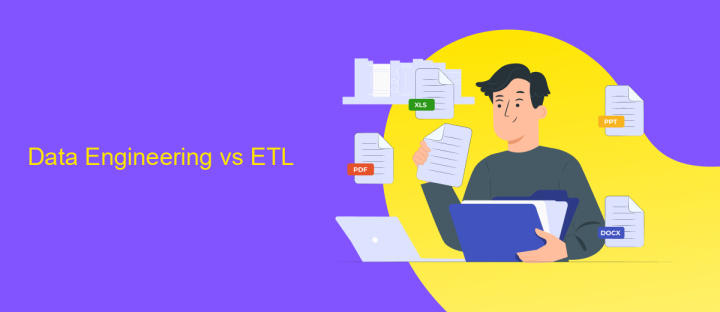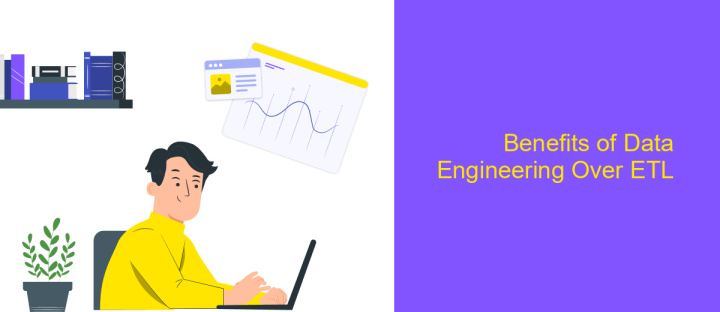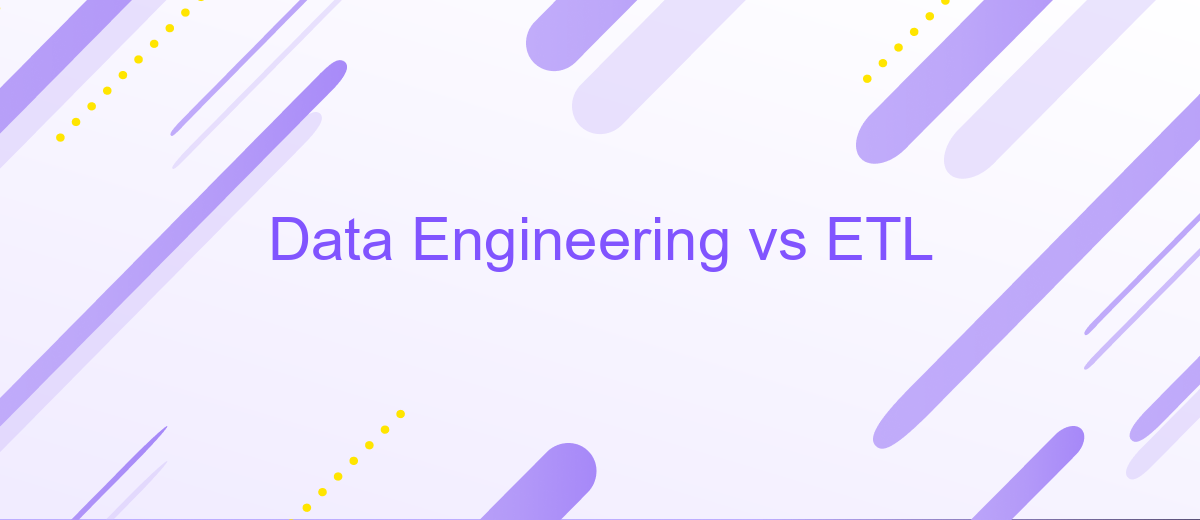Data Engineering vs ETL
Data Engineering and ETL (Extract, Transform, Load) are pivotal concepts in modern data management and analytics. While both play crucial roles in handling data, they serve distinct purposes and involve different processes. This article delves into the differences and overlaps between Data Engineering and ETL, helping you understand their unique contributions to the data ecosystem.
Introduction
Data engineering and ETL (Extract, Transform, Load) are crucial components in the modern data-driven landscape. While they are often used interchangeably, they serve distinct purposes and require different skill sets. Understanding the differences between data engineering and ETL is essential for organizations looking to optimize their data workflows and infrastructure.
- Data Engineering: Focuses on the design, construction, and maintenance of data architectures.
- ETL: Involves the process of extracting data from various sources, transforming it into a usable format, and loading it into a destination system.
- Skill Sets: Data engineers often need expertise in software engineering, while ETL developers focus on data manipulation and integration.
Both data engineering and ETL play pivotal roles in ensuring data quality and accessibility. Tools like ApiX-Drive can facilitate seamless integration by automating data transfer between various platforms, thereby enhancing the efficiency of both data engineering and ETL processes. Understanding these roles helps organizations make informed decisions about their data strategies.
Data Engineering vs ETL

Data Engineering and ETL (Extract, Transform, Load) are often conflated, but they serve distinct roles in the data management ecosystem. Data Engineering encompasses a broader scope, involving the design, construction, and maintenance of data architectures such as databases and large-scale processing systems. It focuses on creating robust data pipelines, ensuring data quality, and enabling efficient data storage and retrieval. Data engineers work with a variety of tools and technologies to support data analytics, machine learning, and business intelligence applications.
On the other hand, ETL is a specific subset within the data engineering domain, concentrating on the process of extracting data from various sources, transforming it into a usable format, and loading it into a target system, typically a data warehouse. ETL tools like ApiX-Drive facilitate these integrations by automating data workflows, thus simplifying the process for organizations. While ETL is crucial for data preparation and integration, data engineering provides the foundational infrastructure and ongoing support needed to manage and utilize data effectively.
Similarities and Differences

Data Engineering and ETL (Extract, Transform, Load) are critical components in the data management ecosystem. Both involve handling data but differ in scope and focus. Data Engineering encompasses the entire lifecycle of data, including its collection, storage, and analysis. ETL, on the other hand, is a specific process within Data Engineering that focuses on extracting data from various sources, transforming it into a suitable format, and loading it into a target database or data warehouse.
- Data Engineering covers a broader range of activities, while ETL is a subset of these activities.
- Data Engineers design and build data pipelines, whereas ETL developers focus on the ETL process within these pipelines.
- ETL tools like ApiX-Drive facilitate integration and data transformation, while Data Engineering involves additional tools for data storage, processing, and analysis.
- Data Engineering often requires knowledge of advanced programming and big data technologies, while ETL can be managed with specialized ETL tools.
In summary, while ETL is a crucial part of Data Engineering, it is not the entirety of it. Data Engineering provides a more comprehensive approach to managing data, from its initial collection to its final analysis. Tools like ApiX-Drive can streamline the ETL process, making it easier to integrate and transform data within the broader scope of Data Engineering.
Benefits of Data Engineering Over ETL

Data engineering offers a more comprehensive approach to data management compared to traditional ETL (Extract, Transform, Load) processes. While ETL focuses primarily on the movement and transformation of data, data engineering encompasses the entire data lifecycle, including data storage, processing, and analysis.
One of the key benefits of data engineering is its ability to handle large volumes of data efficiently. Modern data engineering tools and frameworks are designed to scale horizontally, allowing organizations to manage and analyze vast datasets seamlessly. This scalability is crucial for businesses looking to leverage big data for strategic decision-making.
- Scalability: Efficiently handles large volumes of data.
- Flexibility: Supports various data types and sources.
- Automation: Streamlines data workflows and reduces manual intervention.
- Real-time Processing: Enables real-time data analysis and insights.
Moreover, data engineering integrates well with modern data platforms and services like ApiX-Drive, which facilitate seamless data integration and automation. This integration capability ensures that businesses can easily connect multiple data sources and automate data workflows, leading to more accurate and timely insights.


Conclusion
In conclusion, both Data Engineering and ETL play crucial roles in the data management ecosystem. While Data Engineering encompasses a broader scope that includes designing, building, and maintaining scalable data architectures, ETL focuses specifically on extracting, transforming, and loading data. Understanding the differences and synergies between these two domains is essential for organizations aiming to leverage their data effectively.
For businesses looking to streamline their data integration processes, services like ApiX-Drive can be invaluable. ApiX-Drive offers a seamless way to set up integrations between various platforms, ensuring that data flows smoothly and efficiently. By leveraging such tools, companies can enhance their data workflows, reduce manual effort, and focus on deriving actionable insights from their data. Ultimately, the choice between Data Engineering and ETL will depend on your specific needs, but integrating both can provide a comprehensive solution for robust data management.
FAQ
What is the difference between Data Engineering and ETL?
Why is ETL important in Data Engineering?
Can ETL processes be automated?
What skills are required for a Data Engineer working with ETL?
How do Data Engineers ensure data quality in ETL processes?
Time is the most valuable resource for business today. Almost half of it is wasted on routine tasks. Your employees are constantly forced to perform monotonous tasks that are difficult to classify as important and specialized. You can leave everything as it is by hiring additional employees, or you can automate most of the business processes using the ApiX-Drive online connector to get rid of unnecessary time and money expenses once and for all. The choice is yours!

